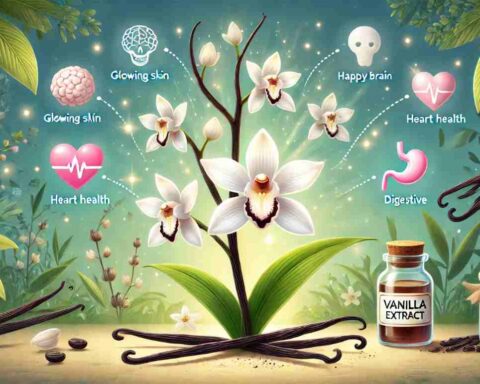Gin is a popular alcoholic drink that has been around for centuries. It is often associated with vibrant cocktails and a fun night out. But like many other alcoholic beverages, people often wonder, Is gin good for you?
Gin is a distilled alcoholic beverage made primarily from juniper berries, along with other botanicals like coriander, angelica root, and citrus peels.
The distinct flavor of gin comes from the juniper berries, which give it a piney and somewhat herbal taste. It is usually around 40% alcohol by volume (ABV) but can vary depending on the brand.
Gin is most commonly used in cocktails like gin and tonic, martinis, and negronis, making it one of the most versatile spirits on the market.
Health Benefits of Gin
While gin is primarily enjoyed as a recreational drink, it does offer some health benefits when consumed in moderation. Here are some health facts you might not know about gin:
1. Contains Antioxidants
Gin, particularly when made with botanicals like juniper berries, contains antioxidants. Antioxidants are compounds that help neutralize harmful free radicals in the body, which can contribute to aging and the development of diseases such as cancer and heart disease. Juniper berries, one of the main ingredients in gin, are known to have antioxidant properties that may help protect your cells from damage.
2. May Aid Digestion
One of the traditional uses of gin was as a digestive aid. Some of the botanicals in gin, like angelica root, are believed to support digestive health. Angelica root has been used in herbal medicine for centuries to treat indigestion and bloating. The alcohol content in gin can also stimulate the production of stomach acids, helping the body break down food more efficiently.
3. Can Improve Blood Circulation
The juniper berries in gin are said to have anti-inflammatory properties, which may help improve blood circulation. Proper blood circulation is essential for delivering oxygen and nutrients throughout your body and ensuring that organs and tissues function optimally. However, more research is needed to confirm the full extent of this benefit.
4. Potential Heart Health Benefits
Some studies suggest that moderate consumption of gin could have heart health benefits. The flavonoids in gin’s botanicals may help reduce the risk of cardiovascular diseases. Moderate alcohol consumption is known to raise good cholesterol (HDL) levels, which can reduce the risk of heart disease. However, excessive alcohol intake can increase the risk of high blood pressure, heart disease, and liver damage.
5. Low in Calories
If you’re watching your weight or trying to maintain a healthy diet, gin can be a good option. A typical shot of gin contains around 70-90 calories, depending on the brand. This makes it one of the lower-calorie alcoholic options when compared to other spirits like rum or whiskey. Just remember, the mixers you pair with gin can add extra calories, so choosing low-calorie mixers like tonic water with a splash of lime can keep your drink healthier.
The Risks of Drinking Gin
While gin may offer some potential health benefits, it is important to remember that alcohol, in general, can pose several risks to your health. Here are some of the potential downsides of drinking gin:
1. Liver Damage
Like any alcoholic beverage, consuming too much gin can have negative effects on your liver. The liver is responsible for processing alcohol, but excessive drinking can overwhelm it, leading to conditions like fatty liver disease, alcoholic hepatitis, and cirrhosis. It’s important to drink in moderation to avoid these serious health issues.
2. Increases Risk of Addiction
Alcohol is an addictive substance. Regular and excessive consumption of gin, or any type of alcohol, can lead to dependence or alcoholism. People with a history of alcohol addiction or those who drink heavily on a regular basis are at a higher risk of developing alcohol-related problems. Drinking responsibly is key to avoiding this risk.
3. Affects Mental Health
Excessive alcohol consumption, including gin, can negatively affect your mental health. Drinking too much can lead to anxiety, depression, and other mood disorders. It can also impair your cognitive function, affecting your memory, concentration, and decision-making abilities. Drinking in moderation is essential for maintaining mental well-being.
4. Weight Gain and Obesity
While gin itself is relatively low in calories, drinking it in excess can contribute to weight gain. This is primarily because alcohol is metabolized first by the body, meaning that other nutrients like fats and carbohydrates are stored as fat. In addition, drinking alcohol can increase your appetite and lead to overeating, particularly when it’s consumed with high-calorie foods.
5. Increases the Risk of Cancer
Alcohol consumption has been linked to an increased risk of developing certain types of cancer, including breast cancer, liver cancer, and mouth cancer. While moderate drinking may not have a significant impact on cancer risk, heavy drinking over time can increase the likelihood of developing these conditions. It’s crucial to limit your alcohol intake to reduce this risk.
How Much Gin is Safe to Drink?
As with any alcoholic beverage, moderation is key. The Centers for Disease Control and Prevention (CDC) defines moderate drinking as up to one drink per day for women and up to two drinks per day for men. One drink is equivalent to a 1.5-ounce (44 ml) serving of gin.
Drinking in moderation allows you to enjoy the potential benefits of gin without putting your health at risk. However, drinking too much, too often, can lead to the risks mentioned above.
Alternatives to Gin
If you enjoy gin but are looking for a lower-alcohol option, you can consider alternatives like:
Gin Mocktails: Non-alcoholic versions of your favorite gin-based cocktails, made with similar botanicals and flavors.
Flavored Water: For a refreshing, alcohol-free drink, try sparkling water with a splash of citrus or a few sprigs of mint.










